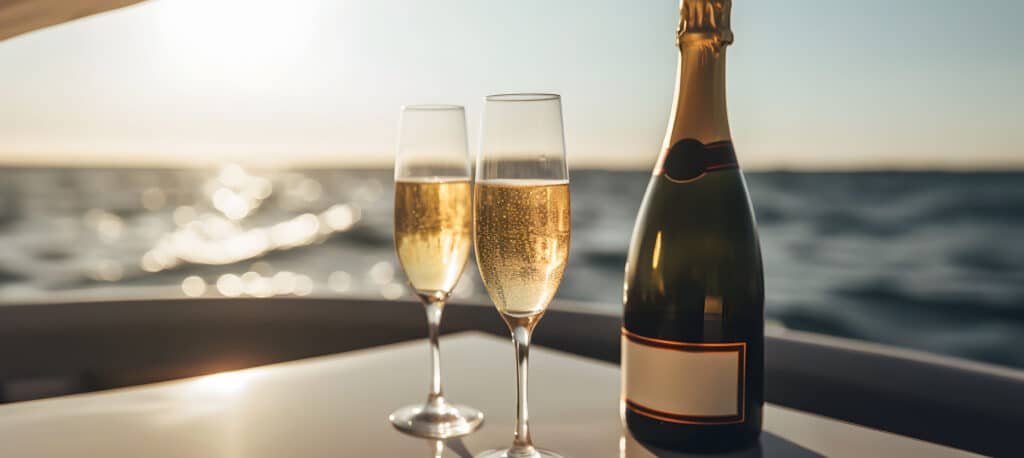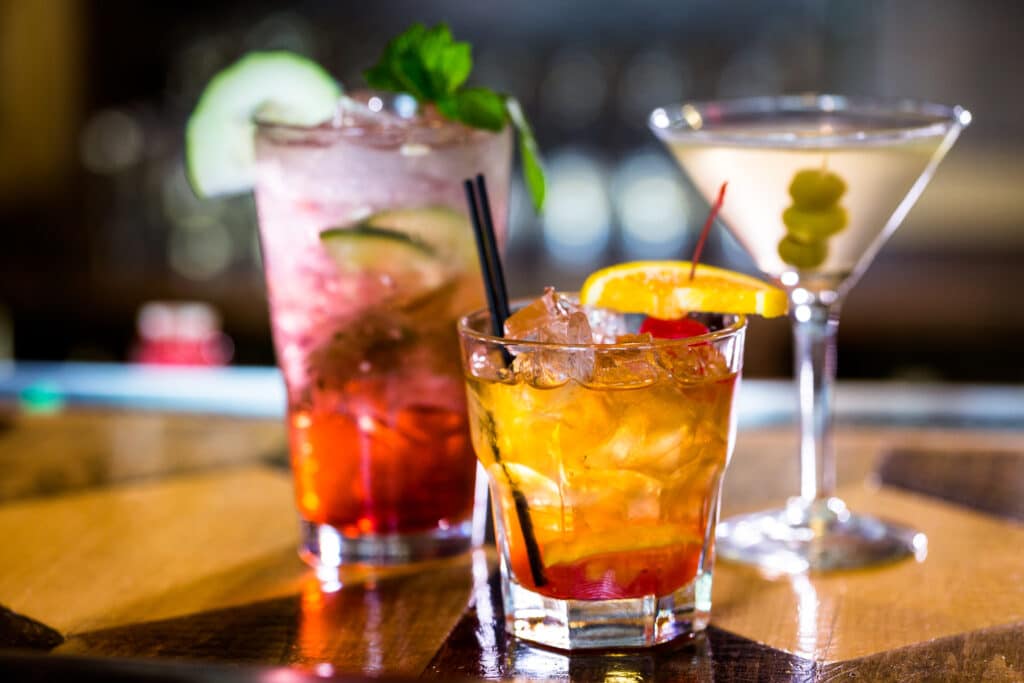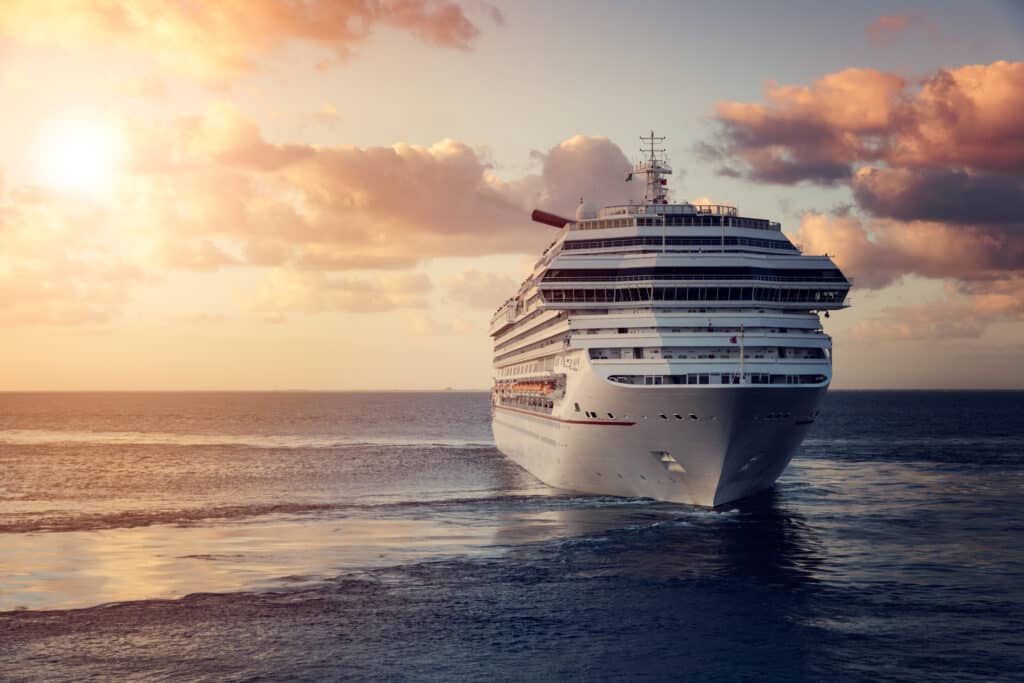With the popularity of cruises on the rise, many people embark to new destinations while enjoying the amenities and activities onboard, and indulging in the consumption of alcoholic beverages.
As fun as that may sound, the practice of serving alcohol on cruises has become a growing concern as it may lead to injury events when overserving takes place. Read more below.

According to the Centers for Disease Control and Prevention (CDC), 35 billion drinks are consumed by U.S. adults each year. Unfortunately, excessive alcohol use is responsible for more than 140,000 deaths each year and $249B in economic costs across the nation.
Overserving alcohol occurs when a person is served more alcohol than their body can handle or is visibly intoxicated, and the alcohol service continues regardless.
By allowing excessive drinking during onboard events and activities, both passengers and crew members are put at risk as this dangerous practice may lead to a range of serious consequences, including:
- Increased likelihood of injury events: Excessive drinking can impair judgment and coordination, increasing the chances of slips, falls, and other injuries onboard the ship.
- Medical emergencies: Excessive alcohol consumption can result in alcohol poisoning, dehydration, or other emergencies that may require immediate medical attention.
- Compromised safety during emergency situations: Excessive drinking can impair decision-making abilities, leading to poor judgment. In the event of an evacuation, emergency drill, or other onboard emergency, intoxicated individuals may not be able to respond effectively or follow safety procedures, putting themselves and others at risk.
- Alcohol-related altercations and conflicts: Intoxicated individuals may become more prone to aggression and confrontations, potentially leading to fights or disturbances among passengers or crew members.
- Disruption of ship operations: The disturbances that intoxicated passengers may cause can impact the smooth functioning of the ship, potentially requiring intervention from crew members.
Damage to ship property: Intoxicated passengers may engage in destructive behavior, causing damage to the ship’s property, furnishings, or amenities, leading to additional costs and maintenance efforts.
Limitations to Avoid Overserving Alcohol on Cruises
The average consumption of alcohol during a 7-day cruise vacation per passenger is 33 drinks per week or 4.7 alcoholic drinks per day.
To prevent alcohol overserving, there are several limitations and measures in place within the cruise industry that aim to help ensure the safety and well-being of passengers and crew.

International Laws and Regulations
The maritime industry is subject to international laws and regulations that govern the sale and consumption of alcohol onboard ships. The regulations vary depending on the country in which the cruise ship is registered and the ports it visits.
In U.S. waters, these international laws and regulations along with the U.S. Coast Guard’s oversight and enforcement contribute to maintaining a safe environment for currently operating cruise ships.
Cruise Line Policies
Individual cruise lines also establish their own policies and guidelines regarding alcohol service onboard. These policies often include measures to prevent overserving, such as limitations on the number of drinks a passenger can purchase at one time or during a specific time period.
To do this, crew members must undergo training that helps them better identify signs of intoxication, including identifying if a passenger has:
- Reactions: Quick, slow, or fluctuating pace of speech, decreased alertness, or slow and deliberate movements.
- Inhibitions: Overly friendly and loud or changing volume of speech, using foul language.
- Physical Appearance: Flushed face, red or watery eyes, untidy clothing, sweating, strong smell of alcohol on a person, droopy eyelids, lack of eye focus.
- Coordination: Clumsiness with money, swaying, drowsy, stumbling, bumping into things.
- Judgment: Argumentative, aggressive, careless with money, irrational statements, losing train of thought.
Additionally, cruise lines must comply with industry-specific training requirements for their staff, such as the Standards of Training, Certification, and Watchkeeping for Seafarers (STCW), which includes training on alcohol management.
The STCW training does not only include alcohol-limitation requirements for passengers but also for crew members by recommending seafarers consume no alcohol within four hours of going on watch, for example.
Other policies individual cruise lines may have in place include restricting the sale of alcohol to certain areas or events on board.
The Legal Implications Of Overserving Alcohol On Cruises
When a passenger gets injured as a result of being overserved alcohol on a cruise ship, the cruise line may face significant legal implications.
One of the main legal implications that a cruise line may face in such situations is negligence claims. This type of claim may allege that the cruise line breached its duty of care by continuing to serve alcohol to an intoxicated individual, directly contributing to the passenger’s injuries.
If negligence is established, the cruise line may be held legally responsible for the damages suffered by the passenger, including medical expenses, pain and suffering, and other related losses.
Maritime regulatory agencies, such as the U.S. Coast Guard, may also investigate incidents involving overserving alcohol and determine if the cruise line violated safety regulations or failed to meet required standards.
Overserving alcohol on a cruise ship may therefore result in regulatory penalties imposed on the responsible cruise lines by relevant authorities. These penalties may include fines, license suspension or revocation, and other regulatory sanctions.
By prioritizing responsible alcohol service and adhering to legal requirements, cruise lines can minimize the risk of injury events and the legal consequences associated with overserving alcohol on their ships.
If you or a loved one were injured on a cruise ship, it is important that you seek the guidance of an experienced maritime lawyer who can help you navigate this complex process and its challenges.
At Maritime Injury Guide we are here to help and offer FREE legal consultations. Take the first step and fill out our contact form or call 866-871-8422 today to learn about your legal rights, obtaining justice, and potential financial compensation.

Sources
- https://www.abc.ca.gov/education/licensee-education/intoxication/
- https://www.cdc.gov/alcohol/fact-sheets/prevention.htm
- https://www.cdc.gov/chronicdisease/resources/publications/factsheets/alcohol.htm
- https://www.dco.uscg.mil/Our-Organization/Assistant-Commandant-for-Prevention-Policy-CG-5P/Commercial-Regulations-Standards-CG-5PS/National-Maritime-Center-CG-NMC/Standards-of-Training-Certification-and-Watchkeeping-STCW/
- https://www.royalcaribbean.com/content/dam/royal/resources/pdf/guest-conduct-policy.pdf